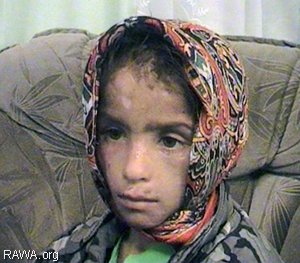Afghanistan is a source, transit, and destination country for men, women, and children trafficked for the purposes of commercial sexual exploitation and involuntary servitude. Afghan children are trafficked internally and to Iran, Pakistan, Saudi Arabia, Oman, and Zimbabwe for commercial sexual exploitation, forced marriage to settle debts or disputes, forced begging, debt bondage, service as child soldiers, or other forms of involuntary servitude. Afghan women are trafficked internally and to Pakistan and Iran for commercial sexual exploitation, and men are trafficked to Iran for forced labor. Afghanistan is also a destination for women and girls from China, Iran, and Tajikistan trafficked for commercial sexual exploitation. Tajik women and children are also believed to be trafficked through Afghanistan to Pakistan and Iran for commercial sexual exploitation.
The Government of Afghanistan does not fully comply with the minimum standards for the elimination of trafficking; however, it is making significant efforts to do so. The government provided land to IOM for the construction of a shelter for trafficking victims. The government should take additional steps to enact a comprehensive anti-trafficking law and increase law enforcement efforts against internal trafficking, particularly trafficking of children for commercial sexual exploitation, forced marriage, and involuntary servitude. Afghanistan also should institute a formal mechanism to refer trafficking victims to NGO protection services and should not punish sex trafficking victims for crimes committed as a direct result of their being trafficked.
Prosecution
Over the year, Afghanistan made no clear progress in its anti-trafficking law enforcement efforts. Afghanistan does not prohibit all forms of trafficking in persons, but the government relies on kidnapping and other statutes to charge some trafficking offenses. This year, Afghanistan did not provide sufficient evidence of arresting, prosecuting, or convicting traffickers. Both the Ministry of Interior and the Attorney General's Office reported data indicating that traffickers had been arrested, prosecuted, and convicted, but they were unable to provide disaggregated trafficking data from other related law enforcement data. The government did not demonstrate any efforts to investigate, arrest, or prosecute government officials facilitating trafficking offenses despite reports of widespread complicity among border and highway police. The government should enact an anti-trafficking law without further delay and increase law enforcement action against complicit government officials. Officials should also take law enforcement measures to curb internal trafficking of minors for commercial sexual exploitation and involuntary servitude, including bonded labor.
Protection
The Government of Afghanistan made modest improvements in its efforts to protect victims of trafficking, but deficiencies in its overall efforts remained. In March 2007, the government provided land for IOM to build a shelter specifically designed for child victims of trafficking. The government also assisted in supporting 400 child victims of trafficking repatriated from Saudi Arabia, Oman, Pakistan, and Zimbabwe by facilitating family reunification and providing the children shelter in existing juvenile centers or orphanages, as well as medical care and educational services. Due to cultural mores, some victims of trafficking, however, continue to be arrested or otherwise punished for prostitution and morality crimes. The government does not encourage victims to assist in investigations of their traffickers, nor does it provide them with legal alternatives to removal to countries in which they may face hardship or retribution. Afghanistan should take immediate steps to end the arrest and incarceration of trafficking victims, and should work with NGOs to establish a formal victim identification and referral mechanism. The government should also improve protection of victims of involuntary servitude, including bonded laborers and forced child beggars.
Prevention
During the year, Afghanistan made limited progress in preventing trafficking in persons. The Ministry of Labor and Social Affairs, with the assistance of UNICEF, conducted a broad public awareness campaign to educate the public on the dangers of trafficking and resources for assistance. Afghanistan does not adequately monitor its borders, but has developed a pilot program to begin monitoring for evidence of trafficking into or out of the country at two sites along the Afghan-Pakistan and Afghan-Iran borders. Afghanistan has not ratified the 2000 UN TIP Protocol.




